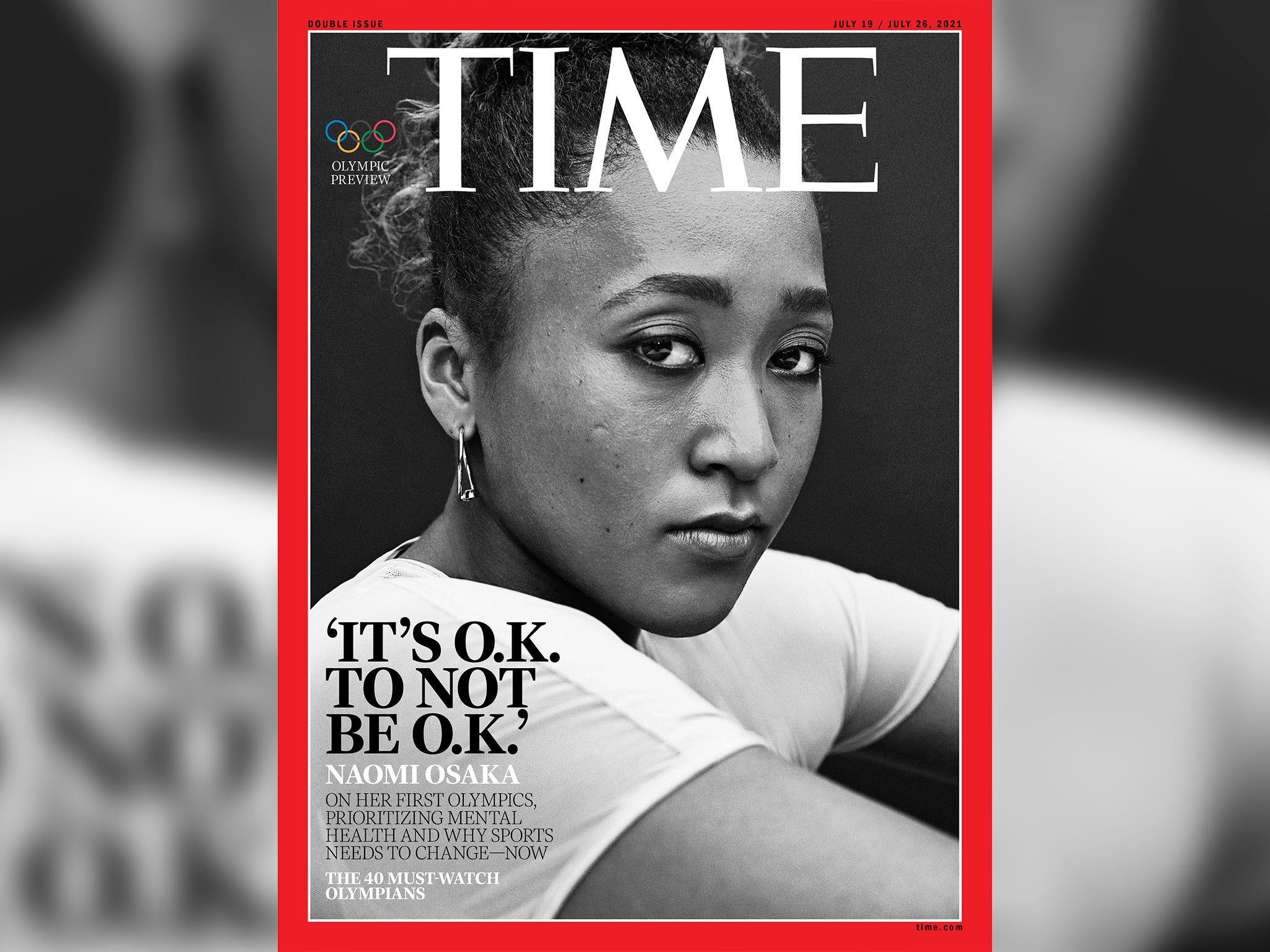Naomi Osaka discusses mental health struggles as she says press conference format ‘in great need of a refresh’
‘I always try to push myself to speak up for what I believe to be right, but that often comes at a cost of great anxiety,’ the tennis player says in new piece for TIME

Naomi Osaka has called the post-tennis match press conference outdated and in need of a reboot as she opened up about how being in the spotlight had affected her mental health.
The four-time grand slam winner penned an essay in the Olympics edition of TIME about her battles with her emotional wellbeing due to her world fame.
She divulged that she had “suffered long bouts of depression” since her first major tournament victory in 2018 when she defeated Serena Williams at the US Open.
This is not the first time that Ms Osaka has spoken publicly about mental health. In May, she withdrew from the French Open after refusing to attend press conferences after matches. The tournament fined her $15,000 for doing refusing to speak to reporters, which Ms Osaka claimed contributed to her emotional unrest.
“I love the press; I do not love all press conferences,” she said in her personal essay. “However, in my opinion (and I want to say that this is just my opinion and not that of every tennis player on tour), the press-conference format itself is ... in great need of a refresh,” she argued.
In the piece, Ms Osaka argued for a reform of the convention, making it “less subject vs object; more peer to peer”.
She acknowledged the “privileged” nature of being a professional tennis player, but it also comes with a high level of scrutiny.
Ms Osaka confessed to be being an introvert, but she pushes herself to speak out on important issues.
She wrote,“I always try to push myself to speak up for what I believe to be right, but that often comes at a cost of great anxiety.
“I feel uncomfortable being the spokesperson or face of athlete mental health as it’s still so new to me and I don’t have all the answers. I do hope that people can relate and understand it’s OK to not be OK, and it’s OK to talk about it.”
Ms Osaka was hailed as brave after she elaborated on her personal struggles after pulling out of the French open.
She also acknowledged in the TIME piece that people, such as Michelle Obama, Michael Phelps and Novak Djokovich, checked in on her to see how she was doing.
Additionally, Ms Osaka opted out of competing at Wimbledon, and her next professional outing is expected to be at the Tokyo Olympics, representing the host nation of Japan. Ms Osaka is touted as the nation’s best prospect for a gold medal.
On July 6, Netflix shared a trailer of the documentary series Naomi Osaka that will explore the life of Ms Osaka, a project she is collaborating on with the streaming giant.
In a statement, director Garret Bradley, who previously earned an Academy Award nomination for the documentary Time, said it was about “life’s purpose, about personal worth, about the courage that it takes to allow one’s personal values to inform their work and vice versa.
“More than anything, I’d hope people can feel the power of empathy and to feel encouraged to take chances in life, perhaps especially in moments where the stakes can feel impossibly high.”
Join our commenting forum
Join thought-provoking conversations, follow other Independent readers and see their replies
Comments




Bookmark popover
Removed from bookmarks